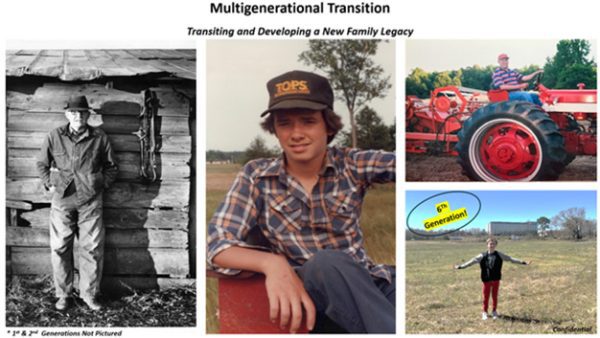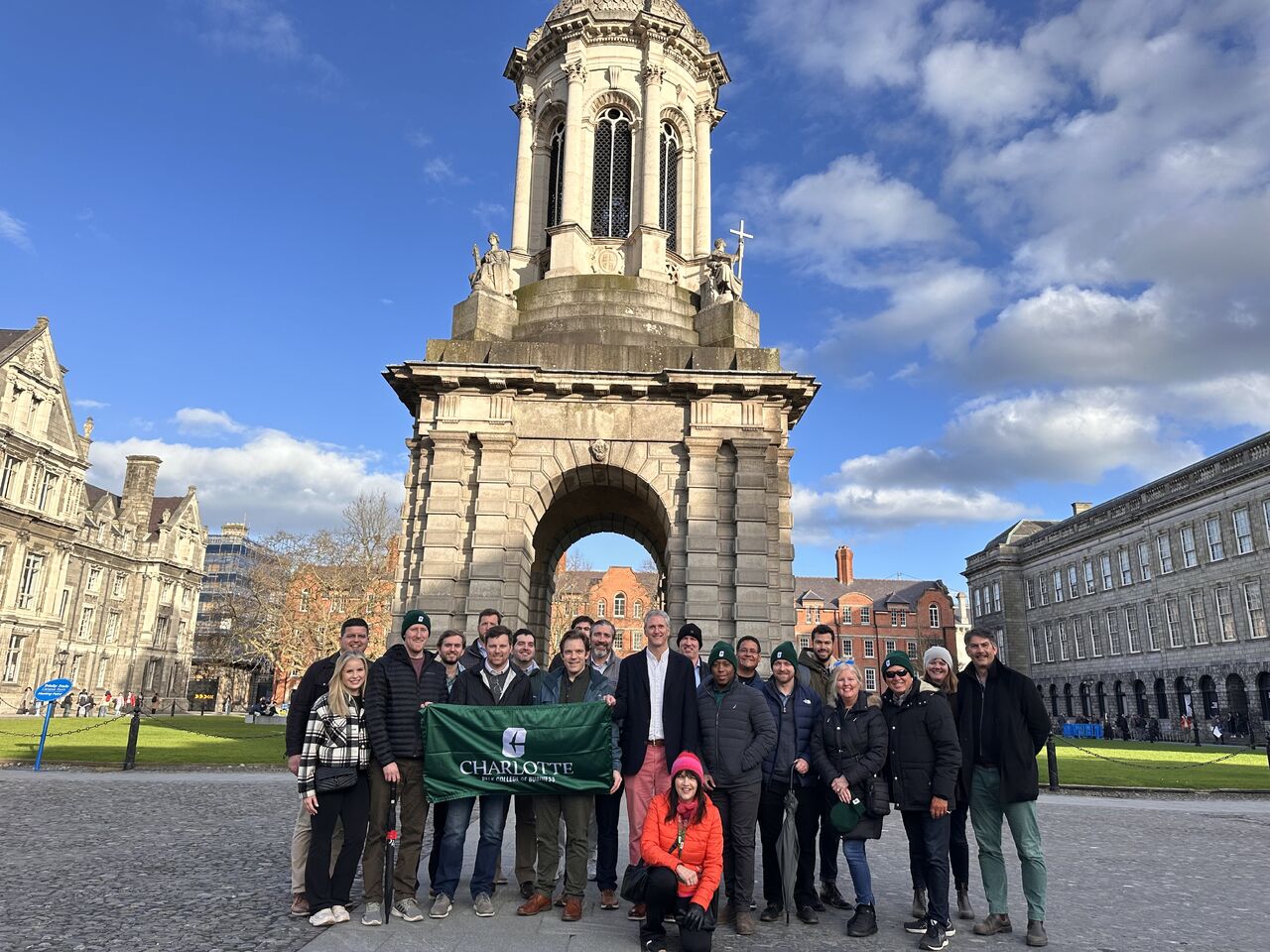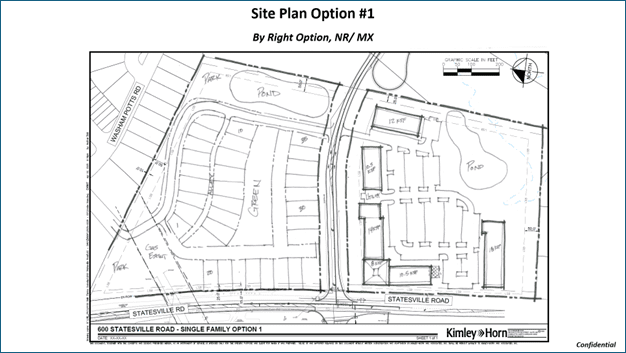Turning Challenges into Opportunities

My real estate journey began with a simple premise that my father always quoted: “When you need to know the most is when you know the least.” This sentiment was on full display in 2017 when I lost my dad and found myself managing a fifth-generation farm and related commercial NNN ground leases. I was being called on to make decisions that I lacked both experience and knowledge to make. Many of these decisions, if wrong, would have significant financial implications.
To bridge this gap, I began shopping for consultative services but found that path to be expensive and fragmented. I needed a comprehensive approach that would cover a myriad of topics, including finance, development, land use, legal and construction, to name a few. It was at this point that I was fortunate to discover the UNC Charlotte Childress Klein Center for Real Estate.
There, I found not only a content-rich master’s program with a well-rounded, expansive curriculum but one that also exposed me to many top industry decision-makers. These networking opportunities ranged from local and regional contacts at the university’s seminar series to national and international contacts through the annual school-sponsored study abroad experience in Dublin, Ireland. This week-long immersion presented many unique opportunities to meet with and engage local commercial real estate professionals in both private and governmental arenas.

In the classroom, there was a robust mix of both tenured and adjunct professors, both of whom had ample first-hand knowledge of commercial real estate tenants. The adjunct professors, in particular, provided real-time insights into local market happenings and delivered those experiences to students. One example was the opportunity to attend a Charlotte city council meeting where land use decisions were being made. This guided experience with a top local land use attorney provided a unique behind-the-scenes opportunity that I wouldn’t have otherwise been afforded.

The pinnacle of my graduate degree pursuit was the capstone project, which was a research-based project that combined all the core disciplines that had been taught. This project produced an investment-grade framework of legacy family land (well over 100 years old) that might be commercialized to its highest and best use. This exercise yielded multiple possible uses that were not only commercially viable but also realistic and consistent with local land-use policies. The work from this project will be used to directly feed the next phase of my post-graduate work, which includes possible commercialization of subject sites or, minimally, establishing standards for the next generations of family landowners, either of which will serve a meaningful purpose.
I owe a debt of gratitude to UNC Charlotte, the Belk College of Business, and the Childress Klein Center for Real Estate for enabling a robust transfer of knowledge and a unique learning experience not available elsewhere.